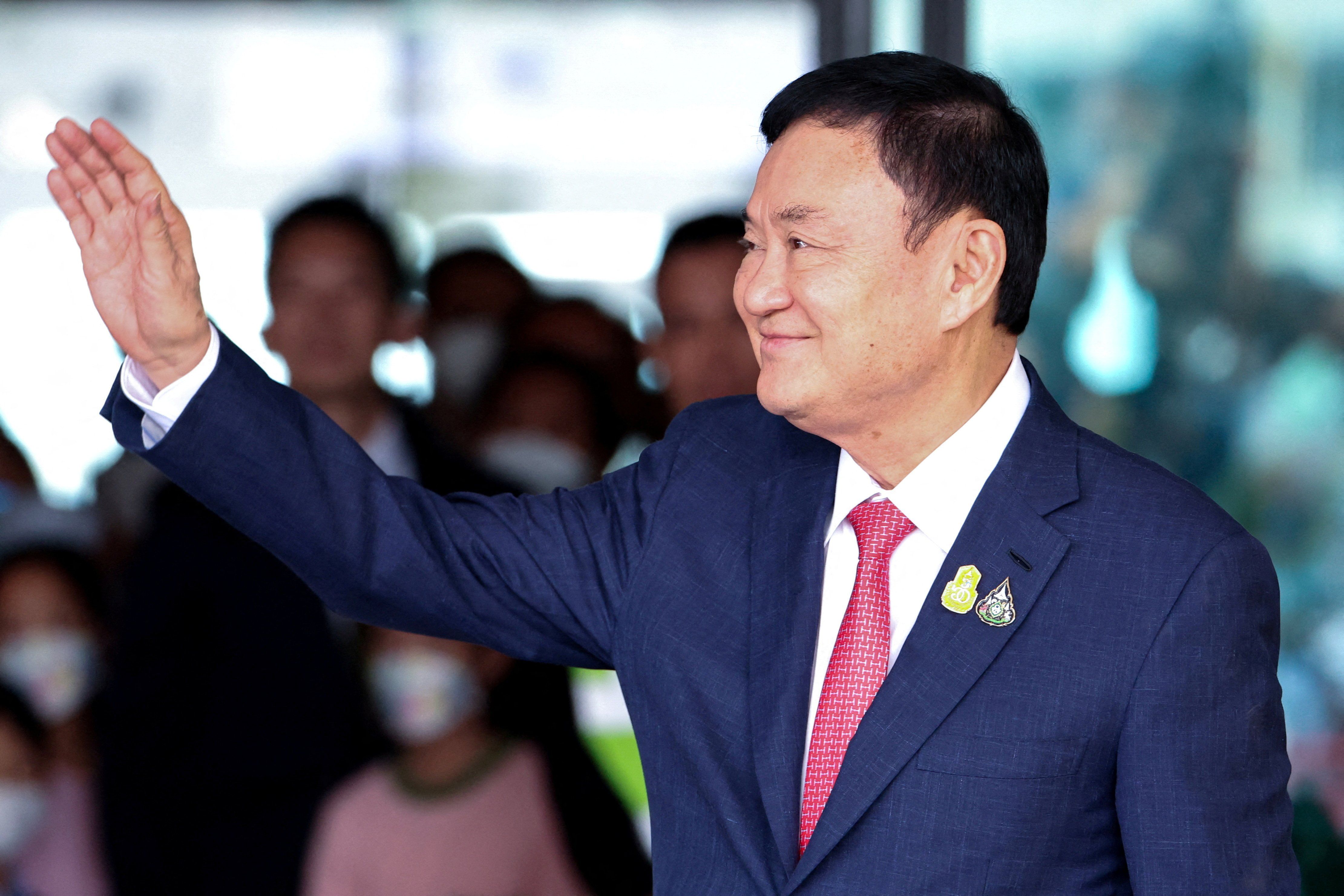August 31, 2023
Thailand’s billionaire former PM Thaksin Shinawatra has appealed to the country’s king for a pardon just days after being jailed upon his highly anticipated return to the country.
The background: In the early 2000s, Thaksin struck a populist chord to win a slew of elections, and was PM until he was ousted in a 2006 military coup that drove him into exile. Last week, he returned home for the first time since then, only to be jailed on charges of corruption and abuse of power.
The timing: It’s fishy for sure. Thaksin’s return came just as the Pheu Thai Party he founded did a once-unthinkable thing: after recent elections, the party agreed to lead a coalition that includes pro-military parties that were once Thaksin’s bitter enemies. The decision effectively shut out the progressive Move Forward Party, which actually won the elections on a groundswell of youth support.
The speculation: Did Pheu Thai do a deal with the military junta in which it buried the hatchet in exchange for Thaksin’s return and pardon? Keep a close eye on what happens in the next few days. The king has a decision to make, and millions of Move Forward supporters may yet show their anger on the streets. If he’s denied the pardon, he will need to wait two years, presumably in jail, before asking again.
More For You
Walmart is investing $350 billion in US manufacturing. Over two-thirds of the products Walmart buys are made, grown, or assembled in America, like healthy dried fruit from The Ugly Co. The sustainable fruit is sourced directly from fourth-generation farmers in Farmersville, California, and delivered to your neighborhood Walmart shelves. Discover how Walmart's investment is supporting communities and fueling jobs across the nation.
Most Popular
- YouTube
President Trump’s second term has rapidly reshaped global politics, with the US wielding power more aggressively, targeting weaker countries and even allies, Stephen Walt explains on GZERO World.
- YouTube
Ian Bremmer breaks down a sudden and serious transatlantic crisis: President Trump’s insistence that the United States must have sovereignty over Greenland.
- YouTube
It’s been a year since President Trump returned to office. How has the world changed? Stephen Walt joins Ian Bremmer on GZERO World.
© 2025 GZERO Media. All Rights Reserved | A Eurasia Group media company.
